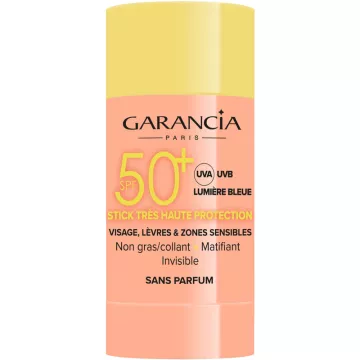
What is sunscreen and why is it essential to use it?
A sunscreen is a topical formulation designed to protect the skin against the harmful effects of the sun's ultraviolet (UV) rays. It works by absorbing, dispersing or reflecting UV rays, helping to prevent sunburn, premature skin aging and, most importantly, the risk of developing skin cancer. Regular use of sunscreen is essential for maintaining healthy, youthful skin, especially when exposed to direct sunlight.
How do I choose the right sun protection factor (SPF)?
The sun protection factor (SPF) is an indicator of a sunscreen's ability to block the sun's UVB rays. In general, a high SPF offers better protection. For daily exposure, an SPF of 30 is often recommended, while for prolonged outdoor activities, an SPF of 50 or more is preferable. It's essential to choose a product suited to your skin type and the intensity of your planned sun exposure.
How and when to apply sunscreen for optimum effectiveness?
For optimum protection, apply sunscreen approximately 20-30 minutes before sun exposure. Be sure to cover all exposed areas, including the face, ears, hands and feet. It's crucial to reapply the product every two hours, especially after swimming, sweating or using a towel. Regular application is necessary to maintain UV protection throughout the day.
What's the difference between chemical and physical sunscreens?
Chemical sunscreens contain organic compounds that absorb UV rays and convert them into heat, while physical sunscreens contain inorganic minerals such as zinc oxide or titanium dioxide that reflect and disperse UV rays. Physical formulations are often preferred for sensitive skin, as they are less likely to cause irritation.
Do sunscreen products expire, and how do I store them properly?
Yes, sunscreens have an expiry date, and their effectiveness may diminish after that date. We advise you to check the expiry date regularly, and to store sunscreen in a cool, dry place away from direct sunlight. Excessive exposure to heat or light can degrade the sunscreen 's active ingredients and reduce its effectiveness.
Can I use the same sunscreen for my face and body?
It is generally recommended to use a specific sunscreen for the face, as the skin in this area is more sensitive and susceptible to acne or irritation. Facial formulations are designed to be lighter, less greasy and may contain additional beneficial ingredients such as antioxidants. However, it's perfectly possible to use a body sunscreen on the face if its formulation suits your skin type.
Are water-resistant sunscreens really effective?
Sunscreens described as water-resistant offer protection in water for a specific duration, usually 40 or 80 minutes. It's crucial to read the label to understand the duration of water resistance and to reapply the product as directed, especially after repeated swimming or towel-drying. These formulations are ideal for aquatic activities, but are not totally waterproof.
How do sunscreens help prevent the signs of ageing?
UVA rays, known for their ability to penetrate deep into the skin, play a major role in skin aging and the formation of wrinkles. A broad spectrum sunscreen that protects against UVA and UVB rays helps prevent these effects by blocking these rays. Regular use of these products can therefore help maintain younger-looking skin and reduce the appearance of age spots.
Are there sunscreen products suitable for children?
Yes, there are sunscreens specially formulated for children, which contain less irritating ingredients and are often physical rather than chemical. These products use components such as zinc oxide or titanium dioxide, which are less likely to cause allergic reactions. It's essential to protect children's skin from an early age, as sunburn in childhood can increase the risk of serious skin problems in the future.
What does "non-comedogenic" sunscreen mean and why is it important?
A sunscreen described as "non-comedogenic" is formulated not to clog pores. This feature is crucial for people with acne-prone skin, as it prevents the appearance of pimples due to the use of sunscreens. Opting for non-comedogenic products ensures effective sun protection without contributing to other skin problems.